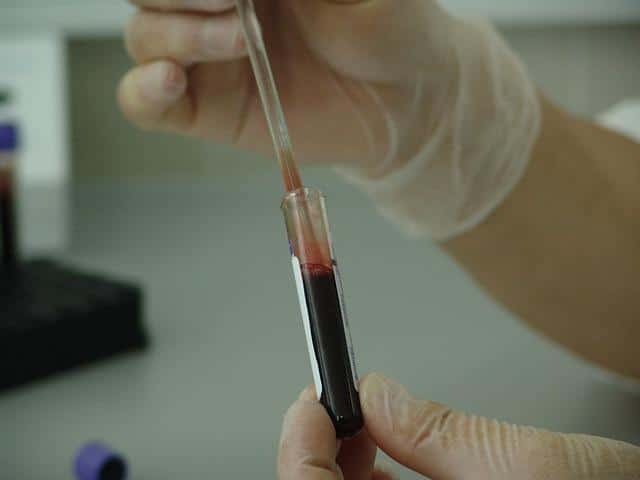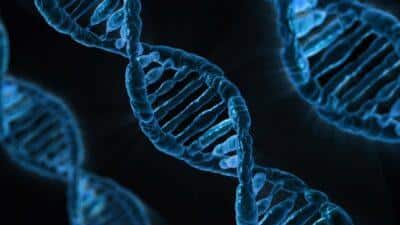MELBOURNE, Florida — In a troubling nationwide trend taking place in even small towns, police are collecting DNA from citizens without a warrant and then turning it over to private companies for permanent storage.
Police departments in several states are routinely gathering DNA samples from people who are not even suspected of a crime, ProPublica discovered. Cops are able to do an end run around the Fourth Amendment’s ban on warrantless searches simply by asking for consent.
Often, people don’t know they have a constitutional right to decline. That happened in Melbourne, Florida, when a group of five teens sitting in a parked car in a community were approached by a policeman. They said they were there for a sleepover, but the officer was not satisfied. He asked which one of them wanted to provide a DNA sample. Adam, a 15-year-old, said he would do it, and proceeded to wipe a cotton swab in his mouth and place it in the envelope. He also signed a consent form, ProPublica reported.
“I thought it meant we had to,” Adam said.
Police have defended their actions.
“In Florida law, basically, if we can ask consent, and if they give it, we can obtain it,” Commander Heath Sanders of the Melbourne, Florida, police department said. “We’re not going to be walking down the street and asking a five-year-old to stick out his tongue. That’s just not reasonable. But’s let’s say a kid’s 15, 16 years old, we can ask for consent without the parents.”
Discover How To Become Invisible In Today’s Surveillance State!
Police in the town of West Melbourne, Florida, even collect “abandoned DNA” from cigarette butts or gum left by citizens who would not sign forms.
Adam’s father said police should not have made the request.
“My concern, being in the medical field, is that it’s not just Adam’s DNA,” Adam’s father (whose name was not revealed) said. “It’s my DNA, it’s my wife’s DNA, and our parents. Not to sound bad, but you just get nervous. There’s some collateral damage there.”
Cops in Bensalem Township, Pennsylvania, routinely ask for DNA tests from suspected drunk drivers and persons merely acting suspiciously, even if the people are not charged.
“There’s no laws, there’s nothing,” Frederick Harran of the Bensalem Township, Pennsylvania, police department said of such DNA tests in a ProPublica interview. “We’re in uncharted territory. There’s nothing governing what we’re doing.”
Bensalem Township officials say the recording of DNA has cut down on burglaries by 42 percent.
“This has probably been the greatest innovation in local law enforcement since the bulletproof vest,” Harran told ProPublica. “It stops crime in its tracks. … So why everyone’s not doing it, I don’t know.”
The problem is that there are few laws governing the collecting of DNA by consent. Also, the private laboratories that store the data are not regulated by state or federal governments.
“No one knows what the rules are about what they’re going to upload into these private DNA databases or not,” said Michael Garvey, head of forensic science for the Philadelphia police. “Mixtures, partials — what’s their criteria? It varies.”
Adam’s father was so upset that he called an attorney. The lawyer, Jason Hicks, quickly discovered that since there were no criminal charges, Adam’s family had no legal recourse. From the police department’s perspective, citizens are voluntarily giving their DNA away – even if it seems they are pressured.
“First, I was just shocked that it had happened,” Hicks said. “Then I was frustrated by the lack of a vehicle to challenge it.”
Some police departments will have the DNA samples destroyed if citizens make a request. Hicks successfully got Adam’s destroyed by making a request and not giving up until it was destroyed. Other police departments, though, have different policies.
“They can ask, but we don’t necessarily have to,” said Capt. Geoffrey Morgan of the Branford, Connecticut Police Department. “I mean, if they gave it to us consensually, then they gave it to us consensually.”
What is your reaction? Should DNA collecting by police be legal? Share your thoughts in the section below:
You’re Being Watched: 7 Sneaky Ways The Government Is Tracking Your Every Move. Read More Here.
 Off The Grid News Better Ideas For Off The Grid Living
Off The Grid News Better Ideas For Off The Grid Living




